Home
/ About Economy / Regional partnerships are continuing to develop and grow between the European Union and countries of the Mediterranean. Pamela Ann Smith examines the benefits
Regional partnerships are continuing to develop and grow between the European Union and countries of the Mediterranean. Pamela Ann Smith examines the benefits
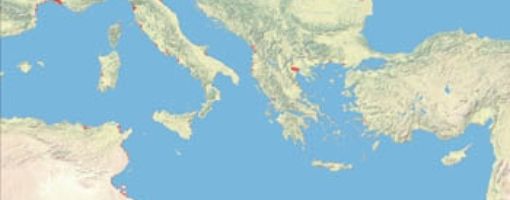
Created: Apr 07, 2010,
modified: Jan 12, 2012,
overall rating: 0.000
Regional partnerships are continuing to develop and grow between the European Union and countries of the Mediterranean.
After much revision, the European Union’s (EU) partnership with the countries of the Mediterranean is forging ahead. Entrepreneurship, particularly for small and medium-sized enterprises (SMEs), along with innovation and investment is being emphasised, as is regional co-operation within the Middle East and North Africa (MENA). Businesses in the UK and Europe stand to benefit, in particular, by having access to labour and markets in nearby, emerging economies which, the EU hopes, can help them to compete better internationally.
The Euro-Mediterranean Partnership, formerly known as the Barcelona Process, was re-launched at the initiative of French President Nicolas Sarkozy, in July 2008, and is now known as the Union of the Mediterranean, or Euromed. It covers the 27 countries of the EU, plus 16 countries in the southern and eastern Mediterranean and adjoining areas, including Turkey, Cyprus and Israel, as well as the Arab Levant, Egypt and North Africa. Altogether, it has a total population of some 750 million.
Six main priorities have been established. These include alternative energies; higher education; pollution in the Mediterranean; measures to combat natural disasters; and the construction of regional transport infrastructures. In addition, a new programme called the Mediterranean Business Development Initiative (MBDI) will focus on micro, as well as SMEs. Identifying specific projects, country by country, and raising funds from private, as well as public, sources are seen as vital to the realisation of these goals that, in the longer term, are aimed at a comprehensive free trade zone throughout the Euromed region.
MBDI aims to tackle the main problems experienced by SMEs, micro-enterprises and the self-employed, such as access to capital and loans, the lack of business training and the need to develop marketing skills. Overall, it hopes that these firms can be integrated into a larger supply chain and connected to the large corporations of northern Europe, which, in turn, can help them to compete globally. The Mediterranean countries, as well as those in Europe, are expected to benefit from the resulting creation of jobs, enhanced access to markets and technical expertise, as well as improved opportunities for specialisation. Family firms in the Euromed region are expected to benefit in particular.
To date, Morocco is one of the EU’s closest allies in the partnership, for which it received ‘advanced status’ recognition in December 2008. A year later, in December 2009, Brussels issued a statement commending the country’s economic reforms since 2007, which were part of a three-year programme worth €654 million, financed in part by the EU. The $1 billion Tangier-Mediterranean (Tangier-Med) regional hub for trans-shipment, which includes two huge free zones, is part of the EU-Morocco Action Plan, which aims to achieve a comprehensive free trade agreement between the two by 2012.
EU officials are also promoting investments in Morocco and in the Mediterranean that will provide business to small local entrepreneurs, and will benefit society. A UK-based firm, TUI Travel, which features beach holidays in Marrakesh and Agadir, has set up The Travel Foundation with the Moroccan National Tourist Office to promote sustainable tourism. In 2009, this included TUI Travel working with 50 hotels and 50 riads in the Marrakesh area to help save water, thereby reducing water bills for Moroccan businesses, while helping to minimise the negative effects of tourism on the environment.
Elsewhere in the Euromed region, European firms have been encouraged to set up or expand operations for SMEs in countries such as Egypt, Jordan and Lebanon. One such project involved Denmark’s BankInvest Group taking a 10 per cent stake in the Cairo-based pharmaceutical company Minapharm, to help it manufacture genetically engineered drugs for the country in partnership with researchers in Germany.
Germany’s Software Quality Systems, known as SQS, has set up what it calls a small ‘Silicon Valley’ in Cairo for Egypt’s IT service providers, helping the country to become one of the world’s top-ten offshore countries for IT services. By the end of 2009, SQS’s own subsidiary in Egypt was expected to have employed 100 people, double the figure at the end of 2008.
The Alumil Group of Greece has invested €10 million to set up two subsidiaries – Alumil Misr for aluminium and Alumil Misr for accessories – in Egypt to take advantage of its market potential and lower labour costs. It has already built several large property projects in Jordan, including the Zara Centre in Amman, and sees its operations there and in Egypt as part of an expansion policy across the Southern Mediterranean, including the Arab Levant and North Africa.
Enefit of Estonia has signed an agreement with the National Electric Power Company in Jordan to set up an oil shale-fuelled power plant, which is due to start operations in 2012. Enefit now hopes to export its expertise on oil shale fuel production to other Mediterranean countries, including Morocco.
Larger European corporations are also looking at Euromed’s potential as an integrated market. France Telecom, which established the Jordan Telecom Group in 2006, combined the Group’s fixed, mobile, internet and content services under the globally-recognised Orange brand in 2007 and has now set up a new centre, Orange Labs, in Jordan as part of a north-south technological co-operation programme aimed at making the country a regional hub for telecoms research and development.
The company has praised Jordan’s “ideal” location between the Gulf States and the Mediterranean and says that Orange Labs “will serve as the principal access point for all Orange France Telecom affiliates in Africa, the Middle East and Asia”. Operations will include research and development, software development, regional specifications and the introduction of new technologies, products and services. Plans call for the establishment of a technology, media and telecommunications park in Jordan.
Arla Foods, a dairy co-operative owned by 15,000 Danish and Swedish farmers, has established a joint venture with Lebanon’s Kallassi Group as part of a plan to expand operations throughout the Middle East and Mediterranean area. The firm, which has a turnover of more than €6.6 billion, says that its market in Lebanon is “booming” and that it sees the region as a whole as very “promising”.
Euromed is also promoting intra-regional integration for SMEs in industry and trade, as well as in energy. Officials cite the experience of Altea Packaging, a Tunisian-based group that launched a new packaging plant in Algeria in 2007. In 2008, Altea took over the Moroccan firm, Optima, one of the country’s five largest flexible packaging companies, as well as acquiring Porta Egypt for Packaging Materials. Through another acquisition, Roland Emballages of France, it now operates in the UK, Germany and the Benelux countries, as well as in France, Egypt and North Africa. Total turnover has reached more than €100 million, while the number of employees in the Southern Mediterranean region has climbed to more than 700.
Another Euromed programme, Med-Enec, is promoting the use of renewable and efficient energies in the Mediterranean’s construction sector. Finance is available for pilot projects, technology transfer and the improvement of laws, standards and incentives in Morocco, Algeria, Tunisia, Egypt, the Palestinian Territories, Lebanon, Syria and Turkey.
Entrepreneurs can obtain information about other projects in the Euromed region through the EU’s Invest in Med programme (www.invest-in-med.eu), or through the European Association of Chambers of Commerce and Industry. The Association, which represents more than 19 million enterprises in 45 European countries, has set up regional networks for the Mediterranean and is particularly focused on the needs of SMEs.
Global Arab Network
Your Rating:
Overall rating: 0.000
Totally voted: 0
Comments
Login/Registration
Weather in:
Exchange Rates
1 USD = 16.200 LE
1 EUR = 18.040 LE
News
-
IMF loan expected next month
Apr 22, 2013, rating: 3.000, 3 votes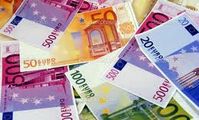 Egypt may secure an International Monetary Fund loan agreement in about amonth, state news agency MENA reported, quoting "informed" sources ...
Egypt may secure an International Monetary Fund loan agreement in about amonth, state news agency MENA reported, quoting "informed" sources ...
-
Egypt received 11 million tourists in 2012 and aims to boost that number to 14 million in 2013.
Jan 22, 2013, rating: 3.000, 2 votes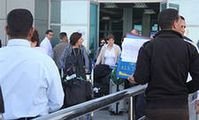
Egypt received 11 million tourists in 2012 and aims to boost that number to 14 million in 2013.
-
Egypt limits travelers leaving country to US$10,000 in cash
Dec 26, 2012, rating: 3.250, 4 votes Egypt has banned travelers from carrying more than US$10,000 in foreigncurrency cash in or out of the country ...
Egypt has banned travelers from carrying more than US$10,000 in foreigncurrency cash in or out of the country ...
-
National Coalition on Climate Change for Egypt is born
Nov 30, 2012, rating: 5.000, 1 votes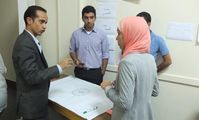 The global COP18 conference on climate change opens in Doha Monday.About 17,000 participants from all over the world ...
The global COP18 conference on climate change opens in Doha Monday.About 17,000 participants from all over the world ...
-
Egyptian family's average annual income is LE25,000, agency reports.
Nov 29, 2012, rating: 5.000, 1 votes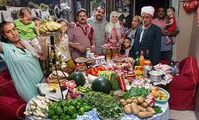 The average annual Egyptian household income during 2010-2011 wasLE25,353, according to the Central Agency for Public Mobilization andStatistics.
The average annual Egyptian household income during 2010-2011 wasLE25,353, according to the Central Agency for Public Mobilization andStatistics.
-
Judgment for sexual harassment
Nov 14, 2012, rating: 3.600, 5 votes A man was sentenced to two years in prison and fined LE 2,000 for sexually harassing a woman, an ...
A man was sentenced to two years in prison and fined LE 2,000 for sexually harassing a woman, an ...








